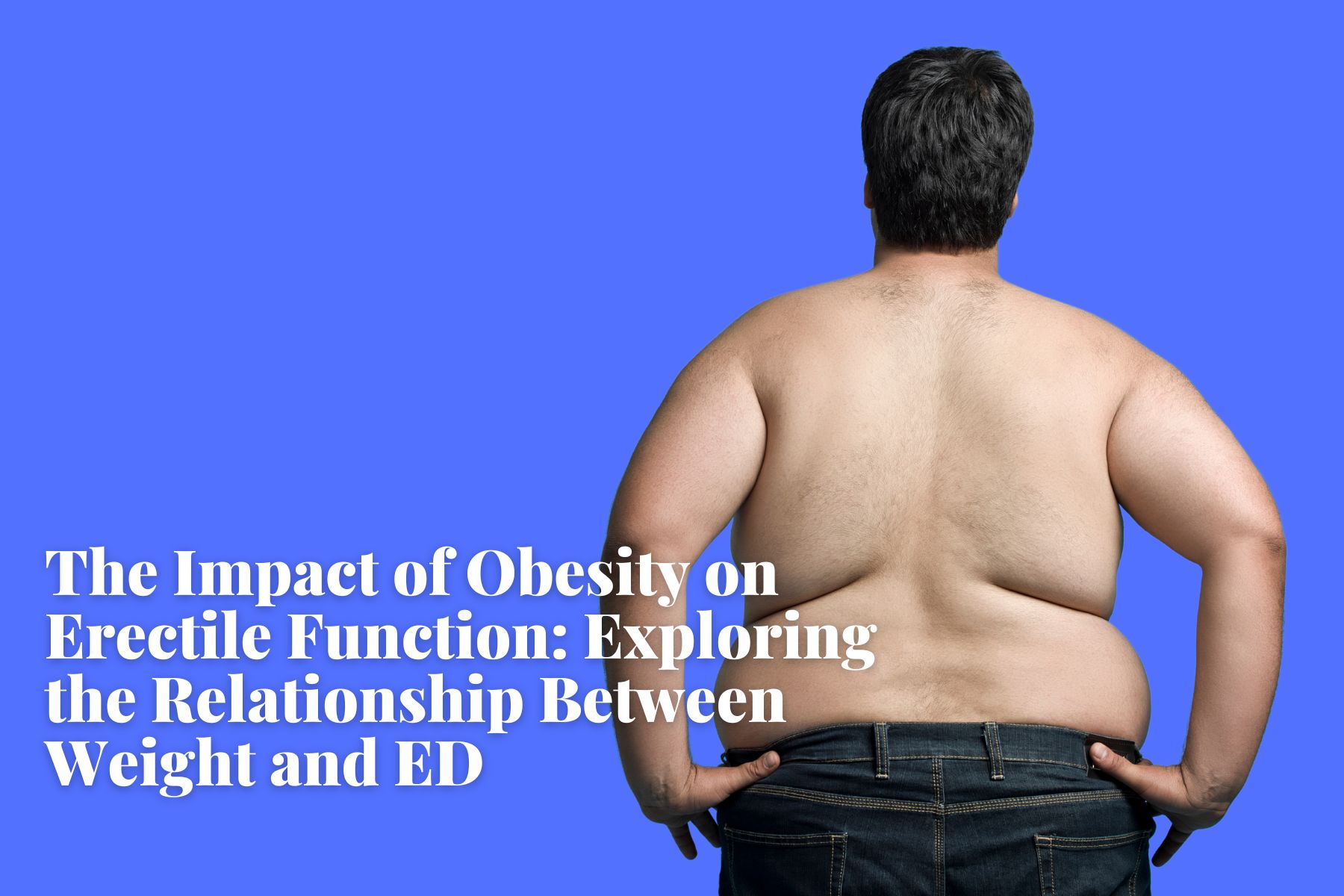CATEGORY: HARDER ERECTIONS
The Impact of Obesity on Erectile Function: Exploring the Relationship Between Weight and ED

In a world where body image and health are increasingly in the spotlight, concerns about the impact of body weight on various aspects of health, including sexual function, have gained prominence. One such concern that often arises is the potential link between being overweight and erectile dysfunction (ED). In this article, we will explore the intricate relationship between body weight and the ability to achieve and maintain a satisfactory erection.
Understanding Erectile Dysfunction:
Erectile dysfunction is a common condition that affects men of all ages, and it involves the consistent inability to achieve or sustain an erection sufficient for sexual activity. While numerous factors can contribute to ED, ranging from psychological to physiological, recent research has shed light on the connection between excess body weight and sexual health.
Body Weight and Blood Flow:
One of the key factors linking obesity to erectile dysfunction is the impact on cardiovascular health. Excess body weight, especially when accompanied by poor dietary habits and a sedentary lifestyle, can contribute to conditions such as high blood pressure, diabetes, and high cholesterol. These conditions, in turn, can impair blood flow to the arteries in the penis, making it difficult for a man to achieve and maintain an erection.
The Role of Hormones:
Obesity is associated with hormonal imbalances, particularly a decrease in testosterone levels. Testosterone plays a crucial role in maintaining sexual function, including the ability to achieve and sustain an erection. Low testosterone levels can lead to a reduced libido and contribute to the development of erectile dysfunction.
Does Weight Affect Penis Size?
One common misconception is the idea that body weight directly correlates with penis size. However, research has consistently shown that there is no conclusive evidence linking body weight to penis size. Penis size is largely determined by genetic factors and hormonal influences during development, rather than fluctuations in body weight.
Does Losing Weight Increase Testosterone?
Losing weight through a combination of a healthy diet and regular exercise has been shown to have a positive impact on testosterone levels. Fat cells, especially visceral fat, produce estrogen, and an excess of estrogen can suppress testosterone production. By shedding excess weight, particularly through a focus on abdominal fat reduction, individuals may experience an increase in testosterone levels, potentially contributing to improved sexual health.
Psychological Impact:
Beyond the physiological aspects, being overweight can also have a profound impact on a person's mental and emotional well-being. Body image concerns, low self-esteem, and anxiety about performance can contribute to psychological barriers that hinder sexual function. The interplay between physical and psychological factors can create a cycle where ED exacerbates existing mental health issues, further complicating the problem.
Positive Changes for Improved Sexual Health:
The good news is that making positive lifestyle changes can significantly improve both overall health and sexual function. Adopting a well-balanced diet, engaging in regular physical activity, and managing stress can contribute to weight loss and improve cardiovascular health, reducing the risk of ED.
Seeking Professional Help:
If concerns about erectile dysfunction persist, it's crucial to consult with a healthcare professional. They can help identify the underlying causes and recommend appropriate interventions, which may include lifestyle modifications, medication, or other targeted treatments.
Conclusion:
While the connection between being overweight and erectile dysfunction is complex and multifaceted, there is a clear link between excess body weight and compromised sexual health. Recognizing the importance of a healthy lifestyle, both for physical and mental well-being, is essential in addressing and preventing the potential impact of being overweight on erectile function. Making informed choices about diet, exercise, and overall health can pave the way for a healthier body and a more satisfying sexual life.


